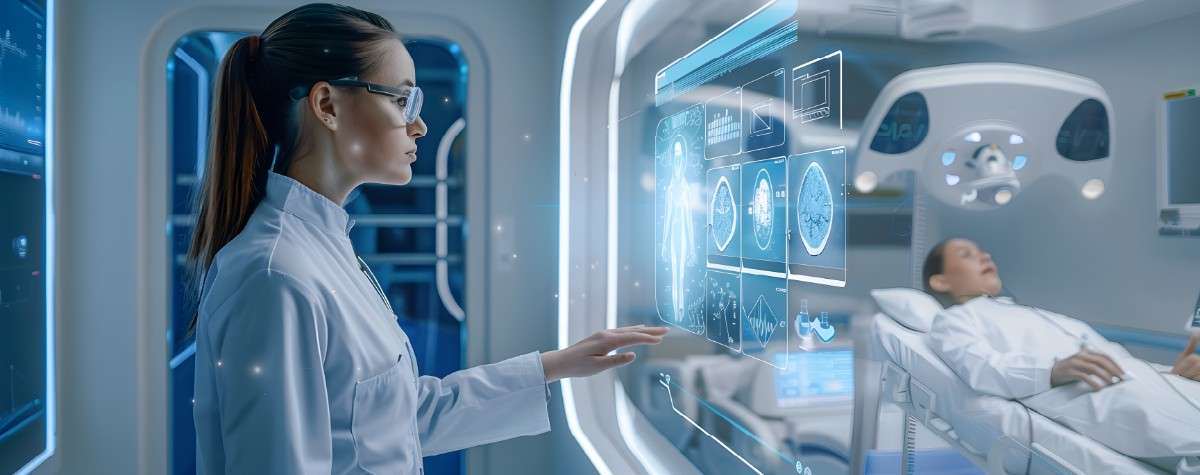


Discover the key drivers, challenges, & innovations fueling healthcare transformation. Explore how AI in radiology is redefining patient care.
Today, healthcare is digitizing rapidly, and the pace of change in care delivery and management has accelerated. AI in radiology and advanced medical imaging software is transforming the diagnosis of diseases by identifying subtle signs and symptoms of conditions faster, with greater accuracy, and more consistently in X-rays, CT scans, and MRIs. AI-powered radiology software with deep learning capabilities can automate the analysis of imaging tests, manage workflow, and improve the decision-making process.
The digital transformation of healthcare is driven by three key forces: evolving patient expectations, regulatory changes, and competitive market dynamics.
Patient-centric care is a must. Patients want more personalized, accessible, and efficient care. With the use of AI in radiology and advanced medical imaging software, patients can receive quicker, more accurate diagnoses and tailored treatment plans, which leads to higher engagement and outcomes. Patient portals and telemedicine make care more accessible and transparent.
Regulations and compliance mandates are speeding up digital adoption. Healthcare providers need secure, interoperable systems, such as AI diagnostics and compliant radiology software, to meet data protection regulations and data sharing standards.
As the number of new entrants and technology companies in the industry increases, providers must adopt new tools to stay competitive. Adopting artificial intelligence in medical imaging and advanced medical imaging software will help providers cut costs and make their services unique.
Healthcare and technology providers push the boundaries of innovation to change the radiology field and workflow automation.
The benefits of digital healthcare transformation include enhanced care quality and reduced costs, but there are several core challenges that must be addressed to make it successful.
First is the issue of data privacy and security. When more patient data is stored and shared digitally, this data needs to be protected from unauthorized access. With the use of AI in radiology and other medical imaging software, this data should be encrypted and controlled by those with proper access.
Skills gaps, change management, interoperability, and integration are the most significant challenges. Medical providers have varying tools, such as radiology software and AI diagnostic tools, which may not communicate with each other. This leads to delayed information sharing and a subsequent impact on patient care.
The skills gap and change management challenges in healthcare are crucial. Technical skills are needed to adopt artificial intelligence in medical imaging. In addition, an organizational culture should change to achieve the best outcomes from advanced medical imaging software. Staff training and change management are crucial for the effective utilization of advanced medical imaging software.
Innovations in radiology are driving healthcare’s digital transformation and improving efficiency, accuracy, and patient outcomes. Radiology software has moved beyond just storing images and now includes workflow management, real-time collaboration, and integration with hospital systems. These solutions automate repetitive tasks, relieve administrative burdens, and empower radiologists to focus on more complex cases.
Artificial intelligence in medical imaging has the potential to revolutionize diagnostics. AI in radiology uses deep learning algorithms to analyze large sets of images and detect patterns and anomalies that might be overlooked by the human eye. This speeds diagnosis, increases accuracy, and helps identify diseases at an early stage (e.g., cancer and stroke).
